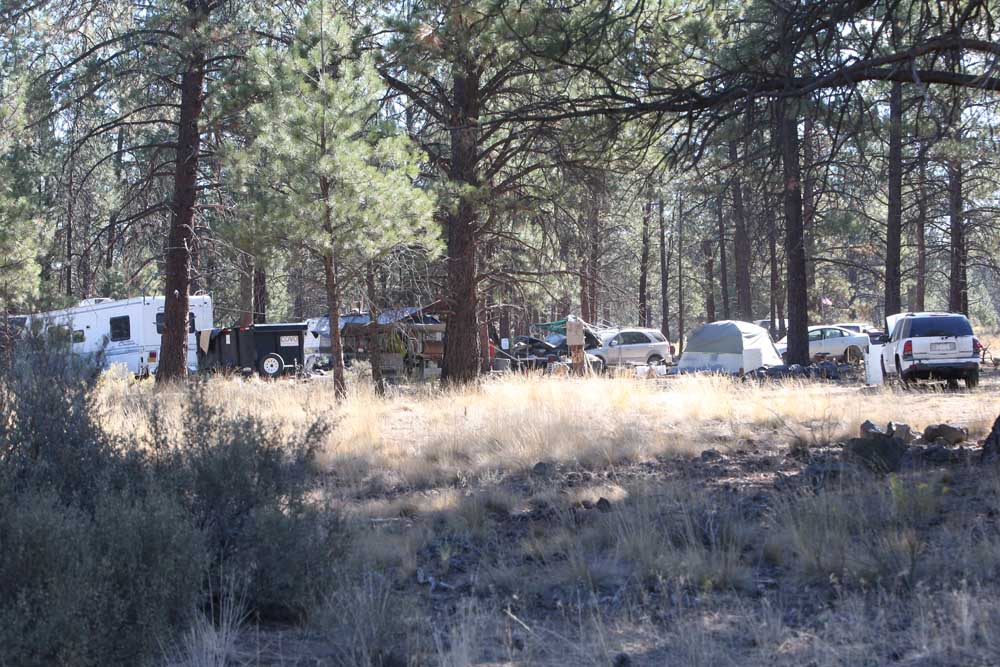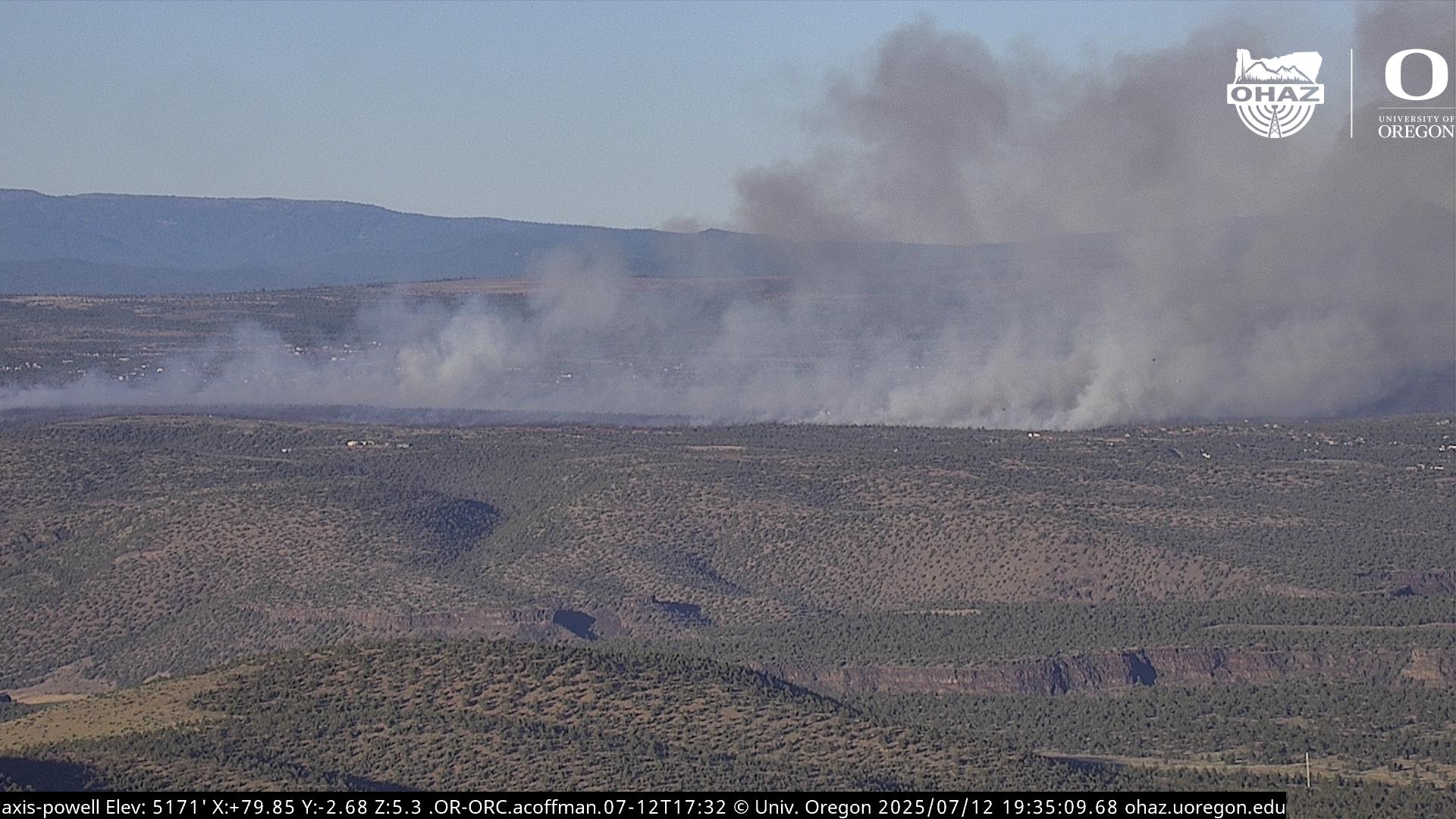Guest column: Through my eyes: Surviving Central Oregon
Published 9:00 pm Friday, November 22, 2024

- Multiple vehicles sit around a campsite for homeless people Wednesday off China Hat Road southeast of Bend.
The van was built to go where there are no roads, and the land is filled with boulders and craters. We brought essential supplies, such as drinking water, shoes, propane for heat and cooking, and warm food. Our destination was the self-built dry camps of our community survivors. Our mission was to bring hope.
The first person I encountered was an elderly individual. Their hair was completely white, hands veined with age, and they emerged from a tent with great effort. As they struggled to stand with the help of a walker, I noticed a small dog following them, shivering in the cold. They both moved towards me, each step a challenge across the barren, icy landscape.
Trending
Their first words to me were, “The ground is a cold bed.”
The next person I met was young, who appeared to have experienced a long-ago injury, leaving visible signs of brain trauma in the way they spoke. They were living alone in what remained of a trailer, abandoned and in disrepair. They explained that the caregiver who had been with them had been taken away by the authorities, leaving them left to survive alone in the harsh environment.
Though they each had a small income, shelter had become so scarce for people with disabilities, lower wages, or who were seeking a fresh start that they were left to survive in the desolate areas of the High Desert.
I cannot accept that those with disabilities, those earning lower wages, and those seeking a second chance have been left to face this reality alone.
This is not just a housing crisis. It’s not simply a homeless crisis. The terms we use can obscure the true extent of the issue.
It’s time we name this for what it truly is. When we call things by their real name, we bring reality into focus.
Trending
This is a humanitarian disaster.
We have normalized the sight of people living in tents, under bridges, or in dilapidated vehicles, as if this is an acceptable condition in one of the wealthiest nations in the world. These are not just images of poverty; they are symptoms of a much deeper moral failing. Each person forced into this reality is someone who has been failed — by systems designed to serve profit over people, by policies that prioritize short-term gains over long-term solutions, and by a collective apathy that allows such suffering to persist unnoticed and unchecked.
Calling it a housing crisis implies a problem with inventory or policy, something that can be solved by building more units or adjusting legislation. Referring to it as a homeless crisis centers the narrative on individuals without stable housing, often burdening them with the stigma of personal failure. Neither term fully captures the broader collapse of safety nets, the failure of systems meant to protect the most vulnerable, or the loss of dignity endured by those forced to survive in such conditions.
A humanitarian disaster recognizes the collective failure at every level — economic, political, and social. It acknowledges that people are not just unhoused but deprived of the most basic human rights: warmth, safety, nourishment, and community. It calls for a response that goes beyond incremental changes and into the realm of urgent, coordinated action.
This is not an isolated issue but a reflection of our values as a society. How we respond to this disaster will define who we are and what we stand for. This is a humanitarian disaster in the United States of America.
Call it by its name. A humanitarian disaster.
Do you have a point you’d like to make or an issue you feel strongly about? Submit a letter to the editor or a guest column.








